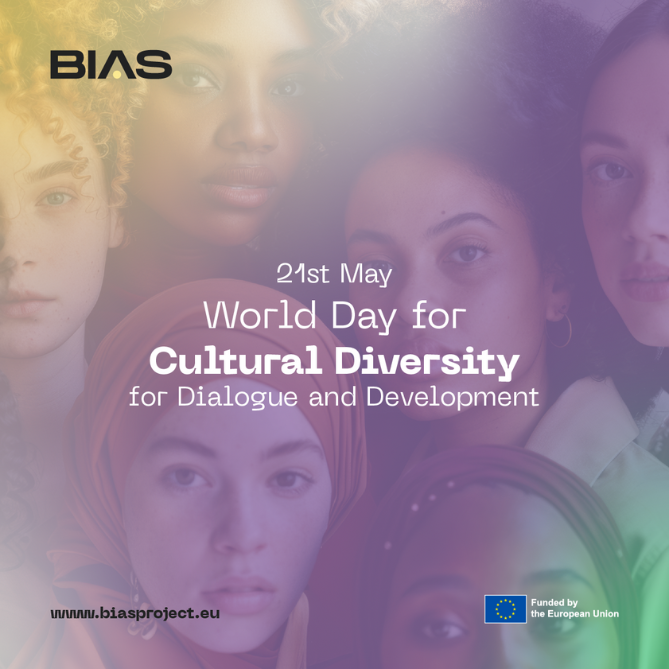19th May 2025
This Wednesday, we join the global celebration of the World Day for Cultural Diversity for Dialogue and Development. Led by the United Nations, this day highlights the richness of global cultures and the vital role that cultural diversity plays in achieving peace and sustainable development. In alignment with these goals, the BIAS project is taking this opportunity to spotlight the importance of cultural diversity—particularly in the context of AI-based hiring and recruitment.
Cultural diversity is essential not only for enriching individual lives but also for fostering a more empathetic, inclusive society. Exposure to different traditions, values, and ways of life broadens our perspectives and challenges our assumptions. It encourages us to see the world through different lenses, helping to reduce prejudice and discrimination. The ability to understand and appreciate differences builds bridges across communities, promotes mutual respect, and highlights the shared humanity that connects us all. In this way, cultural diversity helps break down communication barriers and nurtures a society where everyone can live together harmoniously.
In organisational settings, cultural diversity is closely linked to innovation, productivity, and employee well-being. A 2021 McKinsey report revealed that companies with strong diversity initiatives earned 25% more than their less-diverse counterparts. Teams composed of people from varied backgrounds are better equipped to bring fresh ideas and alternative perspectives to the table, leading to more effective problem-solving and higher innovation revenue.
Furthermore, a culturally diverse workplace creates a more inclusive and respectful environment. Employees feel more valued when their cultural identities are acknowledged and embraced. In recruitment specifically, embracing diversity means taking active steps to minimise unconscious bias and ensure equal access to job opportunities. This is not just the foundation of a successful diversity strategy—it is a crucial first step towards building a representative and inclusive workforce.
Artificial Intelligence (AI) has received criticism for perpetuating bias in hiring, leading many to question its role in diversity efforts. While these concerns are valid—AI systems can indeed reflect the biases of their creators—they also overlook AI’s potential to support more equitable hiring practices.
When designed thoughtfully, AI-based recruitment tools can enhance diversity in several ways. For instance, they can help craft more inclusive job descriptions, standardise candidate assessments to reduce human bias, and offer alternative evaluation criteria that go beyond traditional methods. Additionally, AI can diversify recruitment teams by introducing new perspectives into the evaluation process.
However, this potential can only be realised when fairness and inclusivity are embedded into AI systems from the ground up. Cultural diversity among AI designers can help them integrate more varied perspectives into the AI system, which is why it is so important to promote inclusion in AI development. Designers must be acutely aware of diversity issues, and society at large must engage in ongoing discussions about equity in technology.
By raising awareness around cultural diversity—not only among AI developers but across all sectors—we can harness technology as a powerful tool for inclusion and equality.
